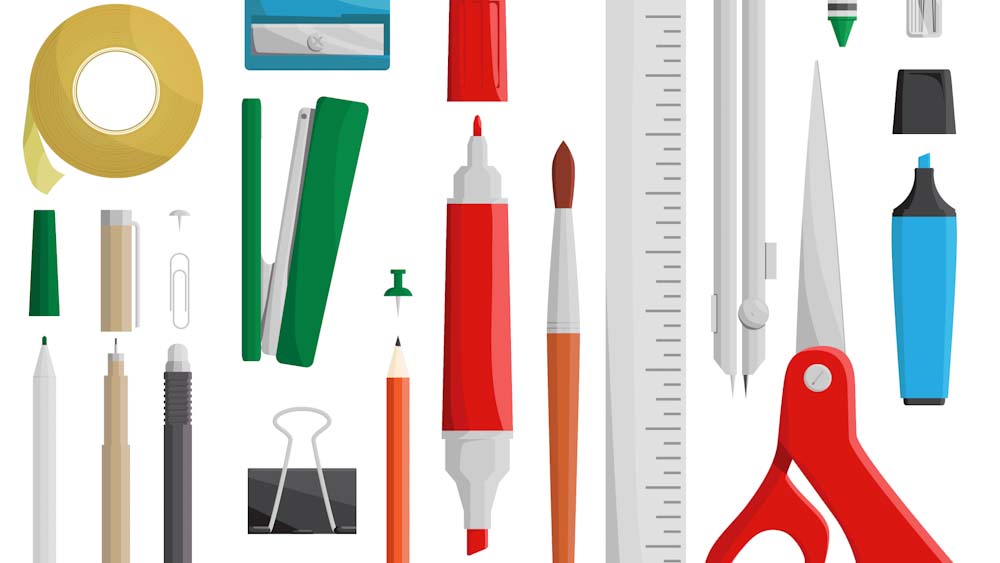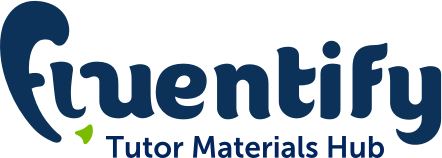Talking about one’s abilities and educational achievements is an important language function. Students often love learning some expressions, particularly, ‘it’s a piece of cake’; a common phrase used all over the English-speaking world.
PDF worksheet for your student
A pdf of all education vocabulary to give to your student once you have taught them the majority of the phrases on this list.
Ability
Intermediate
English speakers use ‘at’ to express their ability for something with ‘‘to be good, bad, terrible, great at something.’
‘I am good at history but terrible at geography.’
Also, there is ‘to find’ + gerund + easy, difficult, hard.
‘She finds singing easy but dancing hard.’
To be a talented + occupation.
‘He is a talented painter.’ ‘She is a talented lawyer.’
Advanced
To nail something – to do a task perfectly in that moment.
‘What do you think of the cake?’ ‘You nailed it. It’s perfect.’
To have the right skill set for something.
‘We should give the contract to them. They have the right skillset for this job.’
To be a piece of cake – saying to say that something is very easy.
‘Don’t worry. Navigating this computer system is a piece of cake.’
It’s not rocket science – another way to say something is very easy.
‘It’s alright, I can check the car tyre pressure. It’s not rocket science!’
Speaking activity
Get your student to use these verbs and expressions to tell you who is the best and worst among their family and friends at these activities.
- Cooking
- Navigating in a place they don’t know
- Fixing computer problems
- ‘Small talk’ – chatting with people they don’t know in social gatherings.
Exams
Intermediate
To pass/ to fail an exam.
To cheat on/in an exam – to ‘copy’ someone in an exam.
‘My cousin got caught cheating in his final year exam and so they failed him.’
To take an exam – to ‘do’ an exam.
To retake an exam – to ‘do’ an exam again because you failed last time.
‘He has to retake his psychology exam in order to pass to the next year.’
To get a result, mark, driver’s licence.
‘Rebecca got her driver’s licence at 18. She finds driving a piece of cake.’
To mark an exam – to ‘correct’ an exam and give it a final score.
‘It takes two weeks to mark all the students’ exam sheets.’
To revise for an exam (UK), to study for an exam (US) – to review and memorise the subject in order to get a good mark in the exam.
Revision (noun).
‘I revised a lot for my French exam and it paid off. I got 85%’
Advanced
To pass an exam with flying colours – a popular phrase to express that someone has passed an exam with very good marks (UK and US).
To ace an exam – a popular phrase to express that someone has passed an exam with very good marks (US).
‘My son passed his finals with flying colours.’ ‘Great! In the USA we also say “he aced his exam.’“‘
To fail an exam miserably – to get terrible marks and fail.
‘How did you do?’ ‘I failed miserably. Let’s go to the pub.’
To scrape by in an exam – to pass with the minimum mark.
‘I hate chemistry. I thought I was going to fail but I just scraped by.’
To get stuck on a problem – when you can’t solve a problem and need help (not, ‘to be blocked on a problem’).
‘We’re stuck on this software problem. We need help from the developer.’
Speaking activity
- Ask the student to tell you about their time as a student at school and university.
- Were they good at exams or did they have to revise a lot?
- Have they ever aced an exam or do they usually scrape by?
- What about cheating in an exam? What were the policies if you got caught?
Subjects and qualifications
Bachelor of Arts (BA) – a linguistic, humanities or artistic degree.
Bachelor of Science (BSc) – a science, maths, engineering or technology degree.
Curriculum – what you will learn from each subject.
A degree – your qualification when you complete a university course.
A Master’s of Arts (MA) – a two year post graduate degree.
A Master’s of Science (MSc) – a two year post graduate degree.
Subjects – the ‘topics’ you take during the course.
Qualifications – the general word for a person’s academic achievements (not ‘titles’).
Matriculation
To apply for a course – to send an application to a university to see if you will be accepted.
Application (noun).
‘I applied to four universities. I was accepted into the course that I wanted and so I have just enrolled.
To enrol – to ‘matriculate’ for a course.
Enrolment (noun).
‘My daughter has just enrolled in a BSc in engineering. Afterwards she might do an MSc.’
Tuition fees – the money you pay to do a course.
‘Fees are going up and up. It’s terrible for young people.’
Out of school education
To train someone – short courses to train someone to do a job (not ‘to form.’)
Training (noun).
Vocational training – education to train someone to do a particular job (often this starts at 16 years’ old).
Speaking activity
Ask your student the following questions:
- If your student were the minister of education, what changes would they make to the education system in their country?
- What are the positives about the current system? what are the negatives?
Picture activity

How many of these stationary objects can your student name? Full pdf download below.
Pdf download
Final thoughts
We hope you enjoy teaching this education vocabulary to your students. What have we missed? Add your vocabulary in the comments section below.

